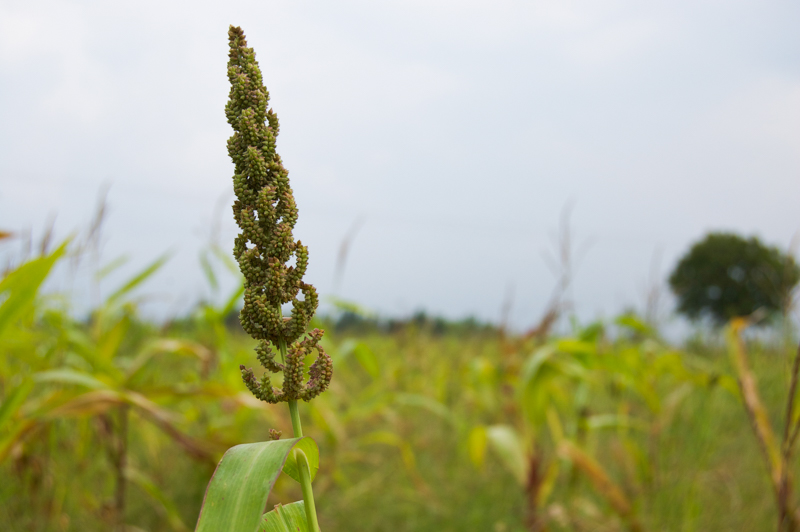Different types of millets have been cultivated in India for thousands of years. These crops are drought tolerant, climate smart, and very rich in nutrients. But the commercialization of rice in the last decades have made many farmers shift into irrigated rice cultivation, and traditional crops have been left behind.
Climate changes are being noticed all over the world, where some areas are experiencing more rain, and other areas less precipitation. Some parts of Tamil Nadu, South India, are especially suffering of monsoon failures, and every year the agriculture suffers more due to the lack of water. As the ground water is depleting, irrigation becomes impossible. Many farmers take loans to deepen their wells, but this is not a sustainable solution, since the ground water level continues to sink, and the small scale farmers typically end up with heavy economical burdens.
Kudumbam NGO is working with organic farming in Tamil Nadu, and the promotion of millets and other traditional crops is an important part of the work. While conventional farming receives different subsides from the state, organic farming gets much less support. The government sets a support price for rice, but this is not the case for traditional crops. Rice is also distributed for free to many families through the Public Distribution System, where families below the poverty line in Tamil Nadu receive 20 kg of rice every month. The sad part of this is that the white rice has a low nutrient content, and it is cultivated with a lot of pesticides harmful to the environment.
Millets used to be a staple food in South India, but it is nowadays hard to find in the market. This is worrying since the cultivation of millets requires much less water than rice, and the nutrient content is much higher. There are many varieties of millets, such as; Barnyard millet, Finger millet, Foxtail millet, Kodo millet, Pearl millet and so on. Each type of millet can be prepared in different ways, and during my stay with Kudumbam I have tried many tasty dishes.
Kudumbam is not only supporting organic farmers, but also try to link them to the consumers. One way is to organize food stalls at different events, where different dishes of millets are being served, and organically labeled products are sold. Recently one such food stall was held at a market in central Trichy, and this weekend Kudumbam will participate in an Agricultural Expo.




















